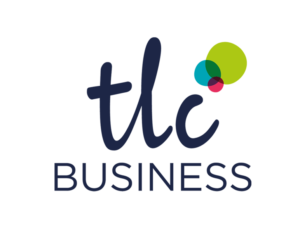What is content marketing and how does it benefit lead generation?
A formal definition of content marketing might go something like this – a strategic marketing approach focused on creating and distributing catchy, relevant and consistent content to attract and retain a defined target audience and help generate profitable leads. Put simply, it is creating and distributing fun, engaging, powerful and moving content that captures your audience’s attention and compels them to do something. Content marketing should be an ongoing process within your overall marketing strategy; however in the B2B market, very few businesses are executing it to its full potential and are missing a cost-effective marketing trick!
What is the ‘content’ in content marketing?
Content marketing revolves around the production of original or curated mixed-media, then distributing it through your different marketing channels, such as website, email or social media. Some typical examples of the type of content you could produce are:
• Blogs
• Case studies
• Video
• Social media posts
• Podcasts
• Webinars
• Infographics
• GIFs
• Quizzes/Surveys
• Competitions
• White Papers
• Resources, for example glossary of terms, calculators, price lists, generators etc
• Apps
Content marketing benefits for lead generation
Other than SEO, PPC and other online advertising methods, blogging is considered the most effective tool for B2C and B2B marketers for generating leads through online channels. Did you know that according to statistics by WebDAM, B2B marketers who blog consistently generate 67% more leads than marketers who don’t? So if you don’t have a blog or news page, you might want to consider getting one! However, the content you are putting out needs to be relevant and engaging for your specific audience in order to see results. Different types of content will generate different outcomes based on their purpose. You might create content to increase brand exposure or your social media following. Perhaps you are looking to inform your audience or existing customers about new projects or industry insights. Your choice of content should be specific to your goals and distributed through carefully selected channels tailored towards your audience.
Create a content plan
In order to produce consistent and good quality content, we suggest creating a content plan as part of your marketing strategy. A content plan will highlight any activities in relation to your content and give you a schedule to work towards to help keep on top of things! We’ve got some helpful tips to create your plan.
1. Whether you’re new to content marketing, or are looking to improve your existing content, firstly we’d recommend looking at your competitors to see what types of content they are producing, if any, and if it is effective or not, to get some ideas for your own. Useful things to look out for are use of links to their website or to external articles, use of hash-tags, and the engagement they receive including likes, comments and shares. Just remember that whilst It is helpful to get inspiration from your competitors, it can be difficult to come up with original ideas that have never been done before, so make sure you avoid copying content and that yours is unique, your own and reflective of your business.
2. Firstly, you need to choose the types of content you wish to create and your goals, for example, social media posts can be great for brand exposure and increasing your audience reach, whereas case studies and white papers can be used to target industry or solution-specific prospects through a lead-gen email campaign.
3. Establish how much content you can create and how often, given your resources and time. A social media post can be created in several minutes, whereas a white paper can take hours to produce.
4. Lastly, you will need to decide how you will be distributing the content. The majority of content will be hosted on your website, but you can then decide if you will share it on social media, include a feature and a link in your e-newsletter or create a targeted email campaign to prospects or for existing clients.
5. Implement all of the above into a content calendar and schedule posts where applicable using social media managing software such as Hootsuite or Sprout, so that you remain consistent, avoid duplication and can plan weekly or monthly themes and topics that fall in-line with your business model.
Content marketing benefits for SEO
The more up-to-date your website is, the more beneficial it is for your user and SEO; therefore, adding new content to your website, such as regular blogs, video, resources, graphics, case studies or white papers can help improve your search engine rankings. Video is increasingly relevant and in demand by users; therefore, having embedded video on your site is a big plus. Content is also a good medium through which to target new keywords, expanding your presence in the search engines, so your audience can find you more readily.
How can we help?
At TLC Business, we can take care of all of your content marketing requirements. Need help with social media management, creating engaging blogs and white papers or producing infographics or resources for your audience? Get in touch today by emailing us on info@tlc-business.co.uk or calling 01962 600 147.











